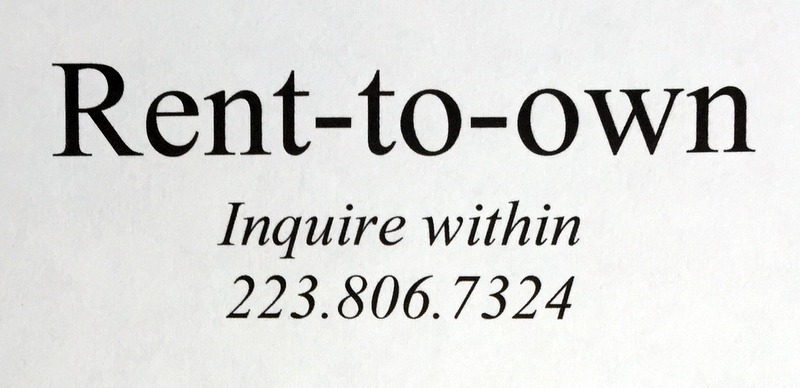
Reader Question: My mother-in-law would like to do a rent-to-own agreement on a house she currently owns with my husband and me. The house is free and clear, and she wants to help us out. We would like to buy the house in about two years. What are both parties’ legal obligations in a rent-to-own situation? Do we have to give her a down payment? How will we handle real estate taxes? What fees do we have to pay her monthly? Tiffany C.
Monty’s Answer: All of the points you ask about are negotiable. In an arm’s-length rent-to-own, the structure might work like this: The property owner remains responsible for the property and keeps the responsibilities inherent in ownership they have paid for all along. These include real estate taxes, special assessments by the municipality, property insurance, maintenance and repairs and any mortgage payments. The property owner receives a fair market rent and a fair market price or sometimes higher to help the seller absorb the down payment set-aside.
The tenant/buyer would sign a rental agreement with all the terms and conditions any good landlord would insist upon in a rental without a purchase option. It should contain a Move-in/Move-out report, photographs of the interior and exterior and a list of any included non-fixture items in the option. An example of a non-fixture item is a refrigerator.
The rental amount includes an option fee and an agreed upon amount of money that is set-aside or credited by the seller for the buyer to accumulate a down payment over a period. If the tenant/buyer exercises the option and purchases the home, the option fee and the accumulated set-aside payment apply against the fixed purchase price. If the buyer does not exercise the option, the rent-to-own provisions provide a non-refundable set-aside and option fee.
A benevolent rent-to-own
When we have a benevolent property owner, who wants to help these terms can be much easier to negotiate. The greater the extent of generosity, the more relaxed the terms can be. When involved with a benevolent seller, consider a land contract. A land contract is a simple home purchase where the seller finances the buyer and delivers the deed when the land contract matures.
Major rent-to-own pros and cons
Pros for the seller:
● Generate income in a slow market
● Generate income when property appeals to marginal buyers
● Generate a higher price for helping a buyer who cannot buy otherwise
● A renter planning to own tends to care for the property
Cons for the seller:
● Property off the market for a long period
● Tenant goes sour, and seller starts over again
● Tenant goes sour and leaves home in disarray
Pros for the buyer:
● Finds homeownership sooner than otherwise possible
● Saves a down payment in the monthly rental
● Takes possession of the home before they own it
Cons for the buyer:
● Forfeits option money (or part of it) paid toward the purchase price if closing fails
● Forfeits set-aside rent (or part of it) if closing fails
● Lack of financing forfeits option money and set-aside rent
● Other housing choices off-limits without penalty
Important sidebars
In many cases, unfair treatment results not from greed, but ignorance. Both parties should understand and agree on the “range of value” of the home. Go to: https://build.dearmonty.com//challenge-real-estate-appraiser/ to learn more. They should also understand the fair market rental value of comparable homes. Go out and inspect a few similar homes for rent to see what the market demands. Understanding both market values gives both parties confidence to proceed.
The legal obligations you asked about will be in the contract between your husband, you and your mother-in-law. The idea of rent-to-own suggests the buyer has little or no down payment/option fee. When you reach an agreement on the terms, seek a good real estate attorney to draft the document. If this were not your mother-in-law but an arm’s length agreement, both parties should be represented separately.
Visit with a mortgage lender before you trigger the contract. Different lenders have different ideas about how they want to see the agreement structured. Some lenders avoid these contracts as they see them as non-conforming risks. Certain buyers and sellers try to set these contracts up to achieve no down payment, which is why the lenders are cautious. The last thing the tenant/buyer wants is not to be able to obtain a loan when the lease matures.
